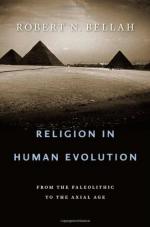|
This section contains 3,021 words (approx. 11 pages at 300 words per page) |

|
Human evolution is the lengthy process of change by which people originated from apelike ancestors starting nearly five million years ago. The modern scientific study of human evolution is called paleoanthropology. A subfield of anthropology, this discipline searches for the roots of human physical traits, culture, and behavior. It attempts to answer questions: What makes us human? When and why did we begin to walk upright? How did our brains, language, art, music, and religion develop? By approaching these questions from a variety of directions, using information learned from other disciplines such as molecular biology, paleontology, archaeology, sociology, and biology, we continue to increase knowledge of our evolutionary origins.
Most cultures throughout human history have myths, stories, and ideas about how life and culture came into existence. Although the current theory of evolution, based on the ideas of Charles Darwin, is accepted by a majority of...
|
This section contains 3,021 words (approx. 11 pages at 300 words per page) |

|


